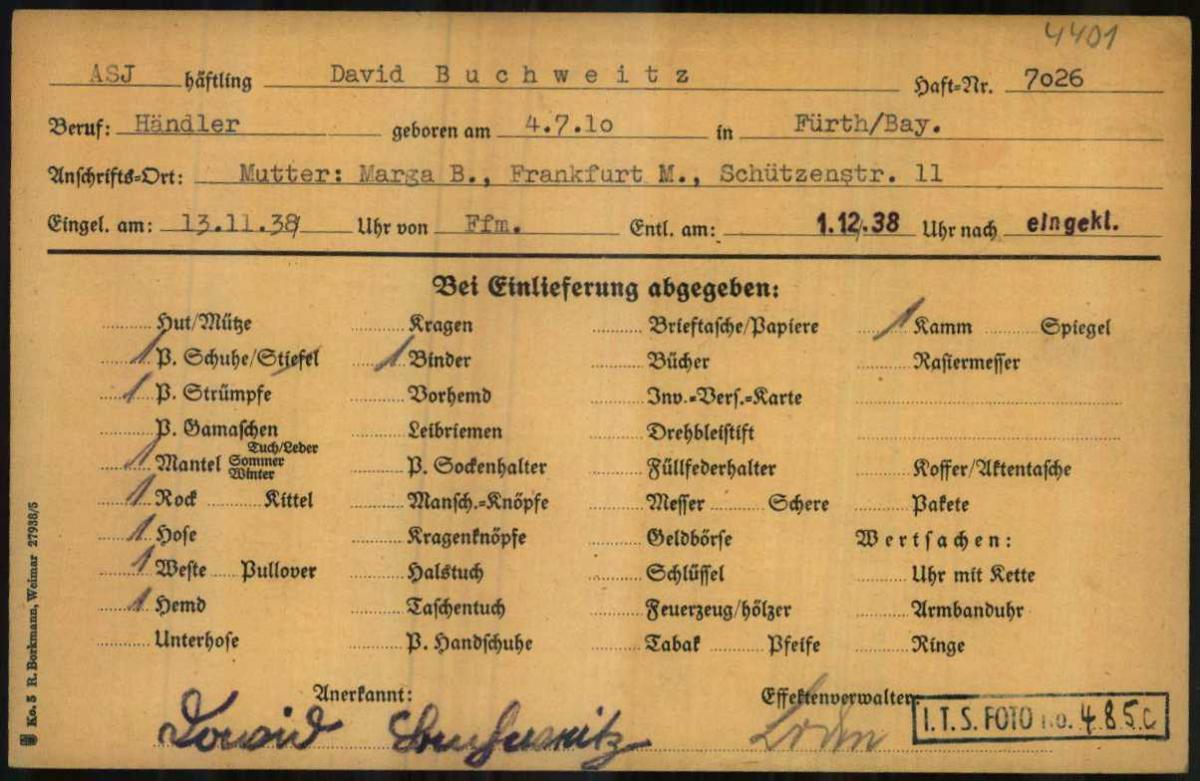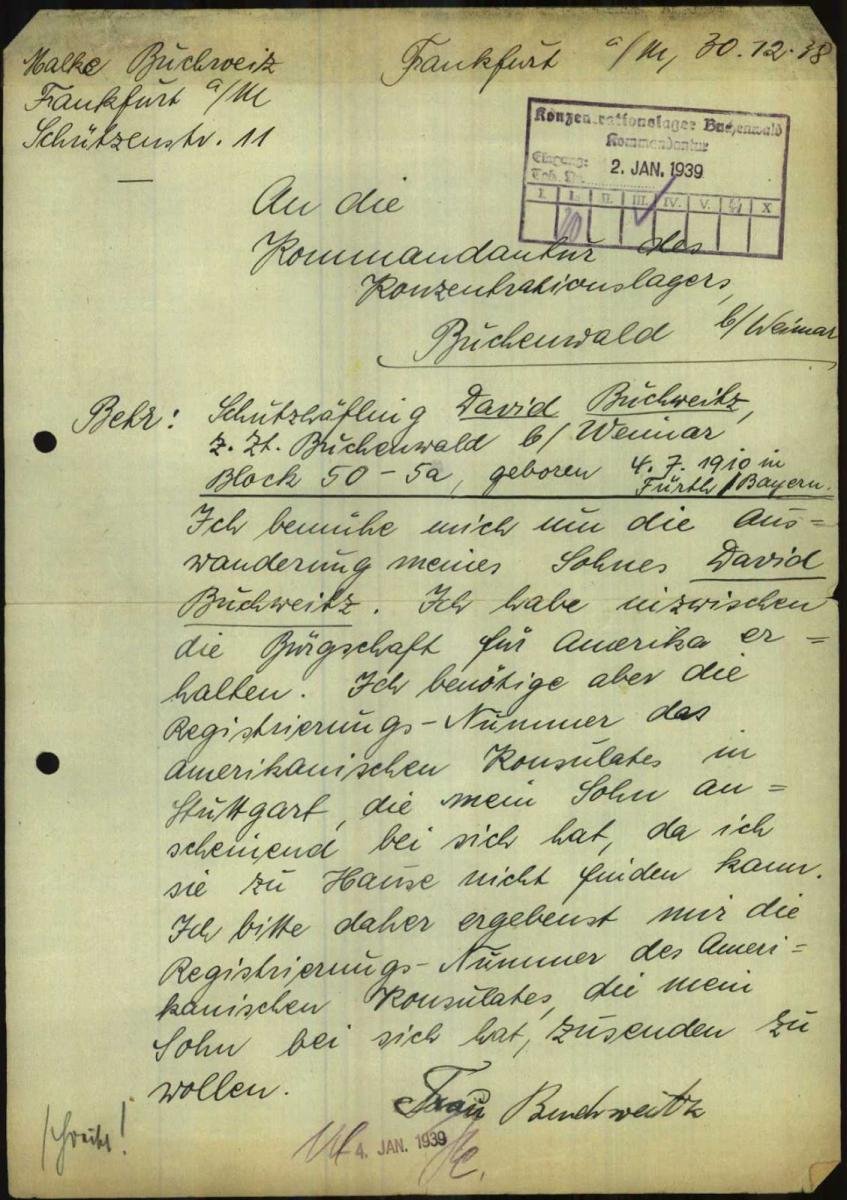



On the night of November 9-10, 1938, the Kristallnacht progrom ("Night of the Broken Glass") raged throughout Germany and Austria.
Kristallnacht was launched in supposed retaliation for the assassination of a Nazi German embassy official in Paris, Ernst vom Rath, by a frustrated young Jewish refugee named Herschel Grynszpan. On November 9, yom Rath died of his injuries.
Within hours, crazed rioting erupted on the streets of cities across the two Nazi-controlled countries. The shop windows of Jewish businesses were smashed, the stores looted, hundreds of synagogues and Jewish homes were burnt down and a large number of Jews were physically assaulted. Some 30,000 Jews, many of them wealthy and prominent members of their communities, were arrested and deported to the concentration camps at Dachau, Sachsenhausen, and Buchenwald, where they were subjected to inhumane and brutal treatment – some even died. During the pogrom itself, some 90 Jews were murdered.
One of the Jewish men arrested was 28-year-old David Buchweitz from Fürth, Germany, who was placed in "protective custody" at Buchenwald.
As his personal prisoner's file from Buchenwald indicates, David was admitted to the camp on November 13, 1938. Like other prisoners in the concentration camps, David had to sign several forms, such as a card listing the personal belongings taken away from him when he entered the camp (see the image below).
After the pogrom was over, the Nazis continued with severe anti-Jewish measures. The Aryanization process of seizing Jewish property was intensified; the Jewish community was forced to pay a fine of one billion Reichsmarks, and the Germans set up a Central Office for Jewish Emigration (Zenstralstelle fuer Juedische Auswanderung) to "encourage" the Jews to leave the country. The Nazis conditioned the release of the incarcerated Jewish men upon their immediate emigration from Germany.
Acquiring a visa for emigration was a tiring, almost impossible process, as the quotas for Jewish immigrants to foreign countries were minimal to the extreme.
Like many Jewish families during this time, David's mother, Malka, was extremely frightened for her family and immediately began the process of obtaining visas to the United States, where the family had relatives. She wrote a letter to the camp's commandants begging for David's release. Eventually Malka succeeded in getting the desired papers for only one visa to the US. David was released from Buchenwald on April 12, 1939, and managed to emigrate.
In November 2015, 77 years after Kristallnacht, David's son, Frank, submitted an inquiry to Yad Vashem regarding Malka's fate.
In research conducted by Yad Vashem's Reference and Information Services Department in the Archives Division, David's personal documents from Buchenwald were found.
Among them was his mother's desperate plea for his release.
Like many other German Jewish women, Malka stayed behind. Malka Buchweitz née Knoebel (b. 1879) was most likely deported to her death in 1942.
Her handwritten letter is all that is remains.









